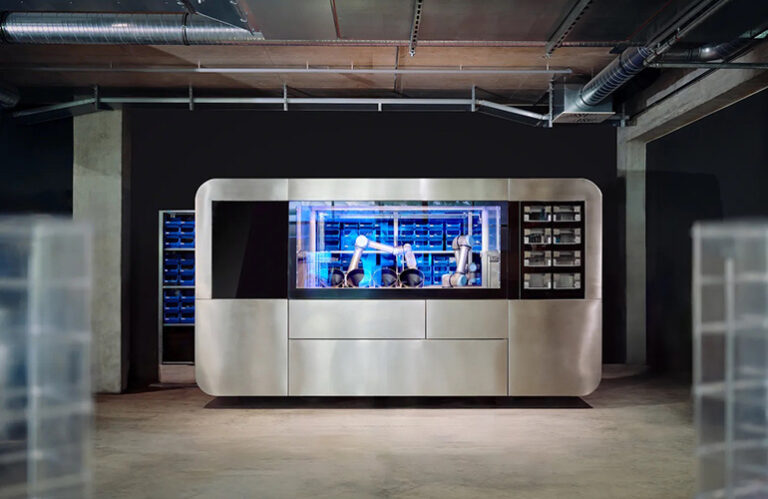|
Listen to this article  |

The CA-1 is a fully automated food system that can dispense ingredients, cook, wash and package without human intervention. | Source: Circus Group
Circus SE, a developer of autonomous kitchen systems, plans to deploy a network of 5,400 food-making robots across 92 educational institutions in Beijing. The company expects the deployment to help drive single-digit revenue growth into the high 1 billion euro range over the next few years. Circus Group also said the robots will produce around 4 billion fresh meals per year.
Last week, Circus formalized the effort by signing a memorandum of understanding (MoU) with the Peking University Food Ingredients Procurement Center. The company said the partnership will enable it to use its Circus Autonomy One (CA-1) system to build and expand an autonomous flood supply network.
“The signing of this MoU marks an important milestone for Circus and for the future of foodservice autonomy globally,” said Nicholas Bullwinkel, founder and CEO of Circus Group.
“We are honored to implement this partnership, giving us the opportunity to bring our foodservice technology to students at educational institutions and faculties in Beijing, providing a balanced and varied diet to millions of talented students while improving food safety and efficiency in university cafeterias,” he said. “This agreement marks our entry into the China market and highlights the immense potential of our technology to transform foodservice around the world.”
The Procurement Center serves over 90 agencies
Peking University Food Ingredients Joint Procurement Center was established in 2001 and is responsible for sourcing raw materials for the university canteen under the guidance of the Ministry of Education and the Industry Committee. The center's aim is to ensure food quality and safety and improve the quality of life for students and faculty. It serves more than 90 universities and educational institutions in Beijing, delivering millions of meals every day within a limited time frame.
Founded in 2021, Circus currently has over 75 employees across four locations. The Hamburg, Germany-based company aims to revolutionize foodservice operations by leveraging AI, robotics and proprietary software systems.
A Memorandum of Understanding outlines the ground terms for future cooperation between the two parties. It is not legally binding, but it helps define key points of contractual agreement until a detailed and legally binding contract is drawn up.
Circus Group Plans to Deploy CA-1
Circus says the CA-1 is a food production robot that can autonomously dispense, cook, wash and pack ingredients without human intervention, with a compact footprint of just 20 square meters (215.2 square feet).
The company claims the system minimizes production costs and food waste while maintaining cooking and hygiene standards.
As part of the agreement, the two companies announced they would create an autonomous supply system operated by the CA-1 robot to produce more than 10 million meals on demand every day across educational institutions in Beijing. The companies said CA-1 will ensure that meals are available and accessible to all students at all times.
CA-1 runs on Circus Group's proprietary operating system, Circus OS, a suite designed to digitally control all operational processes and integrate artificial intelligence to improve operational efficiency, quality assurance and customer satisfaction.
CIRCUS and the Procurement Center plan to collaborate in multiple phases, beginning with joint university test operations in preparation for the broader market launch of the CA-1, with CIRCUS having exclusive market access from the start of this initial phase.
“Our partnership with Circus Group marks a major step forward in developing an automated, highly efficient food supply system,” said Liu Zhigang, director of Peking University's Food Ingredients Joint Procurement Center. “Their robotics technology will provide our institution with affordable, high-quality meals available on demand, improving the quality of life for our students and teachers.”
In a more defined national growth phase, the Procurement Centre will be able to further support Circus in the national rollout of its CA-1 food production robot, serving 4,000 educational institutions with a total of 60 million students.


